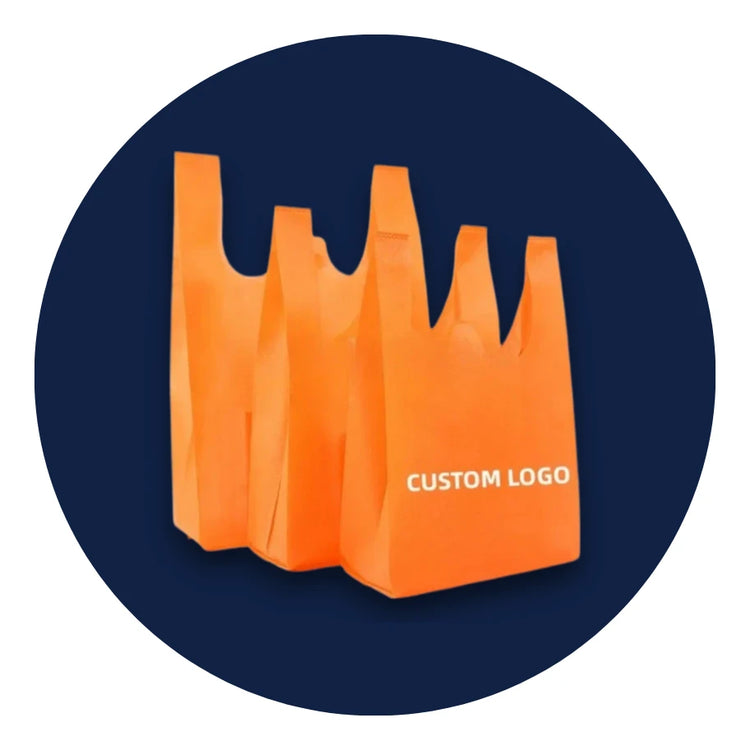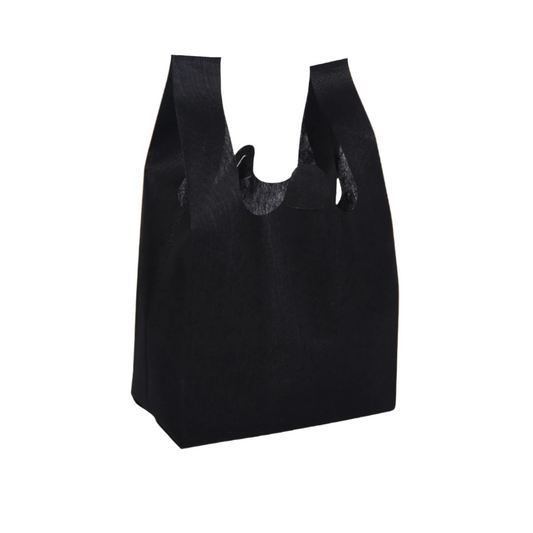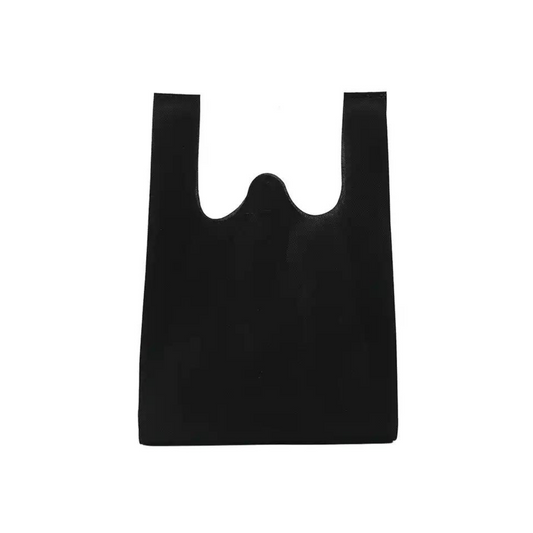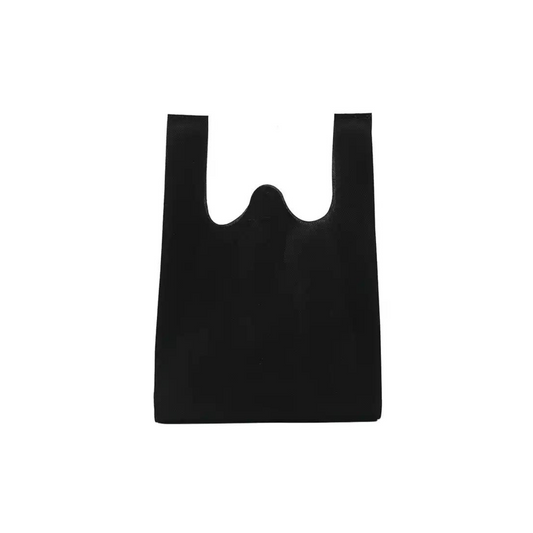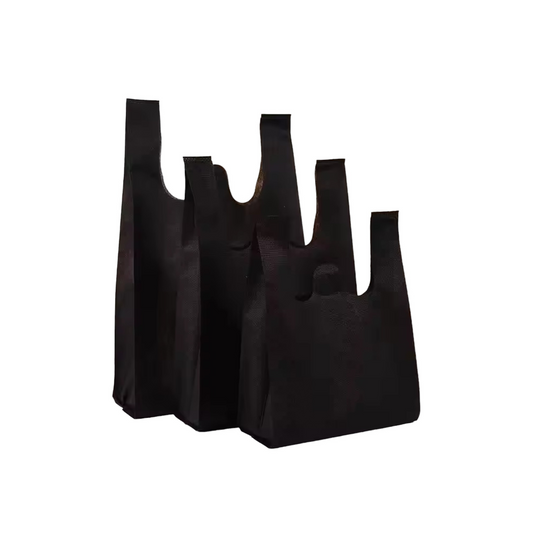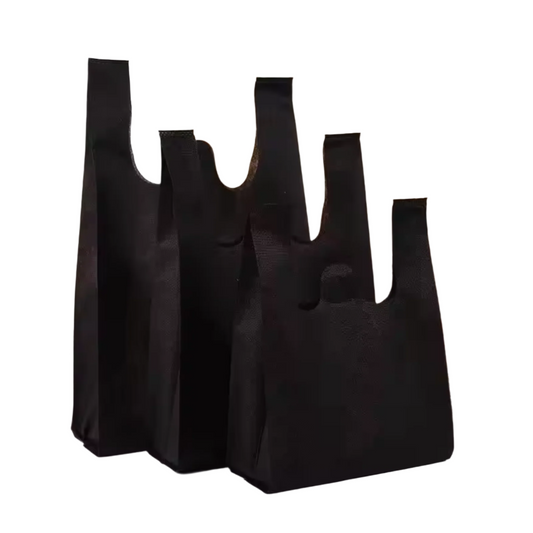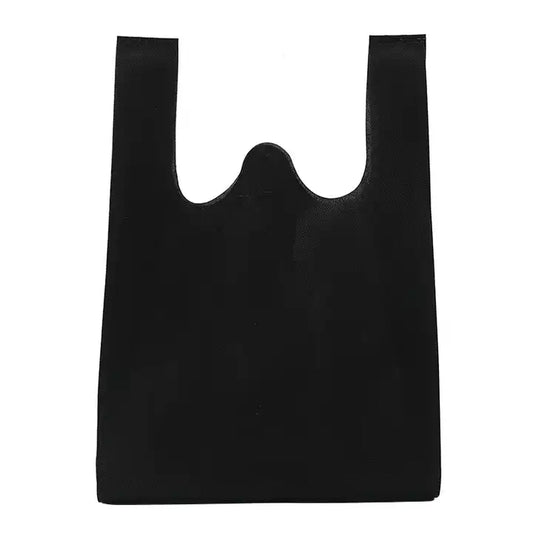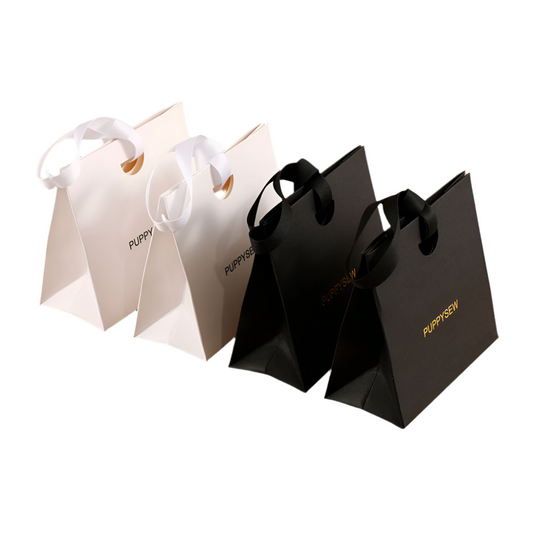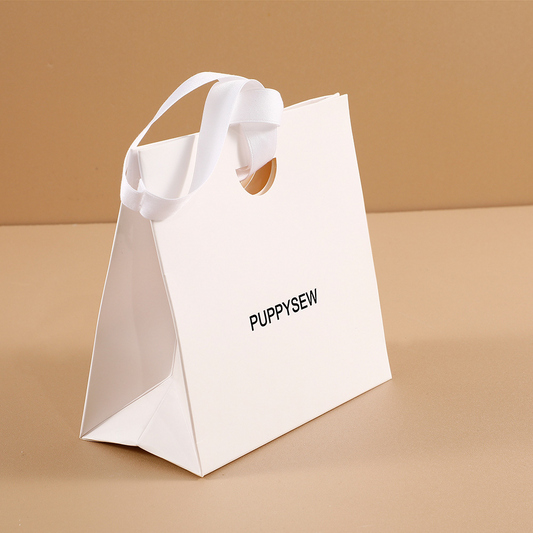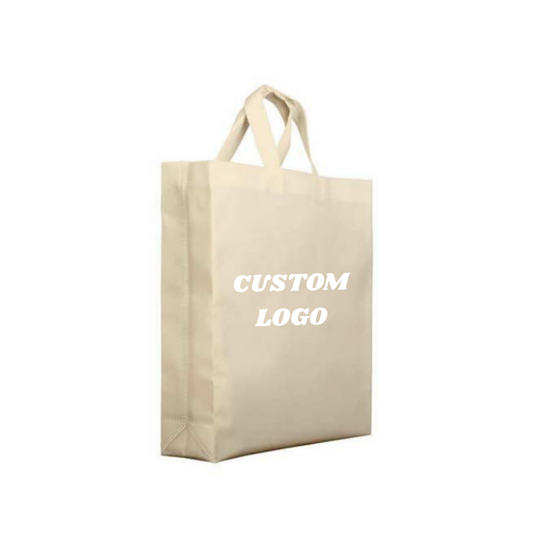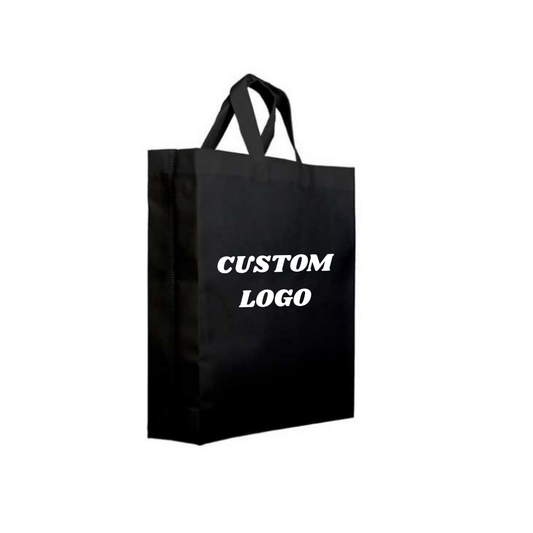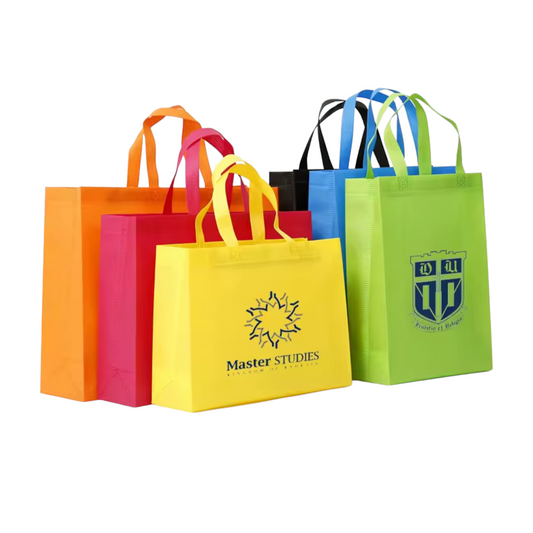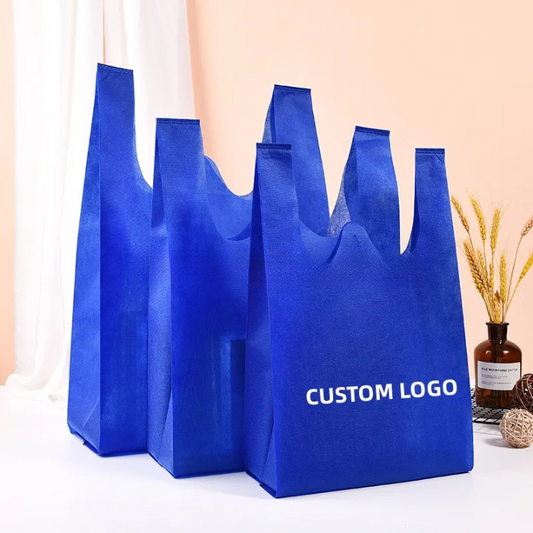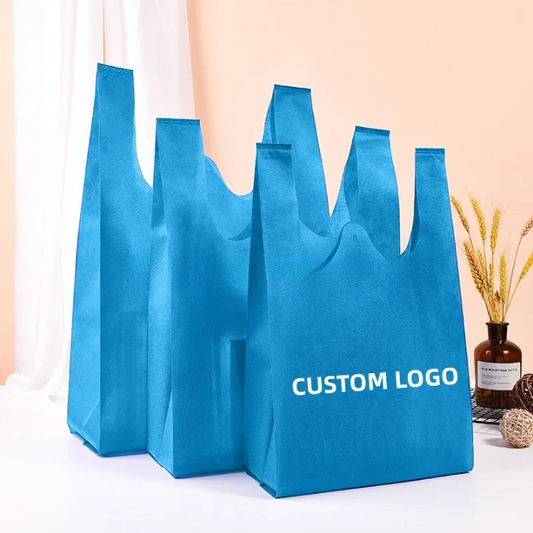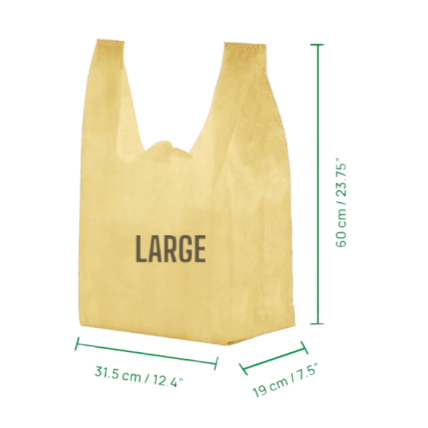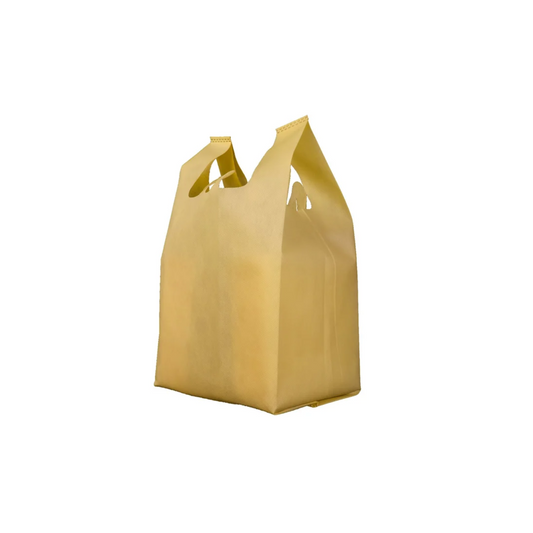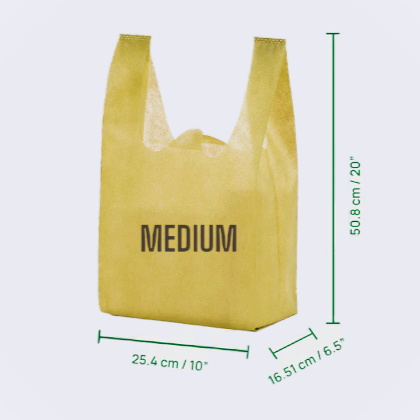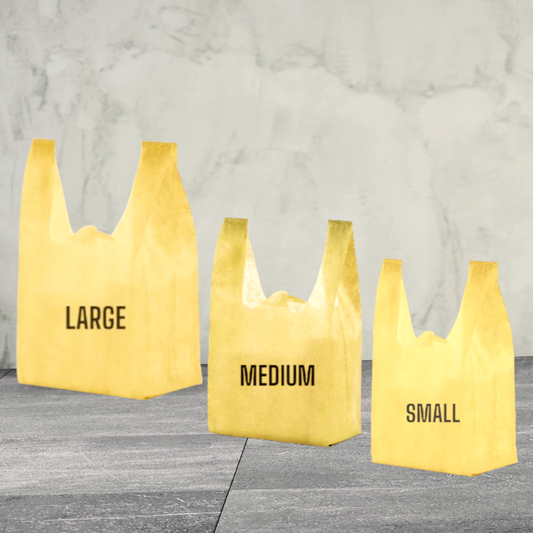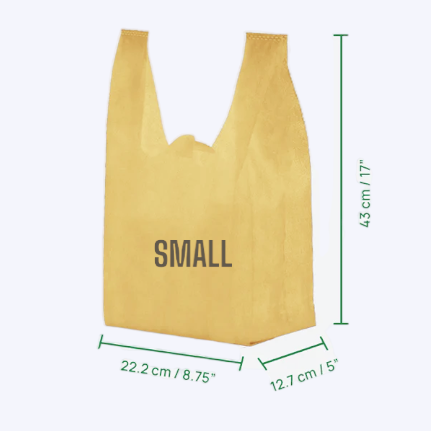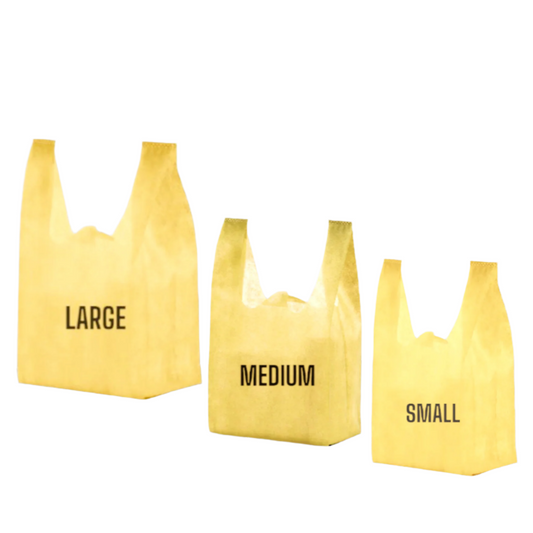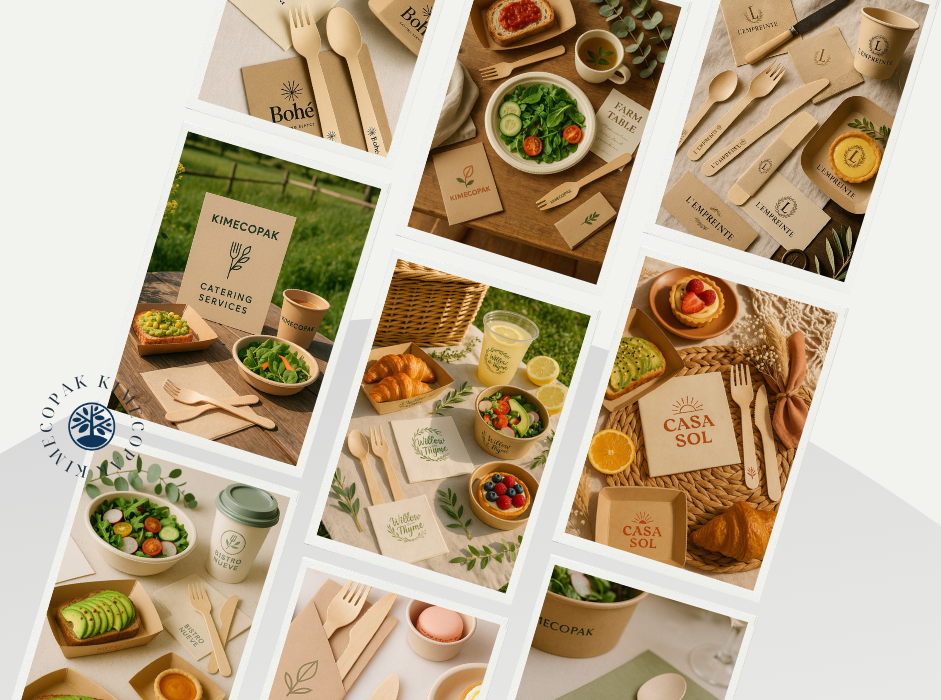-
Black Non Woven Reusable Bags | Size L l For Shopping | Case of 400
Regular price $139.00Regular priceUnit price per$159.00Sale price $139.00Sale -
Black Non Woven Reusable Bags | Size M | 10" x 6" x 20"| Case of 400
Regular price $139.00Regular priceUnit price per$0.00Sale price $139.00 -
Black Non Woven Reusable Bags | Size S, M, L | For Supermarkets, Retail, Grocery Stores
Regular price $119.00Regular priceUnit price per -
Black Non Woven Reusable Shopping Bags | Size Large | 12 x 7 x 23 Inches | CASE OF 400 PCS
Regular price $139.00Regular priceUnit price per$159.00Sale price $139.00Sale -
Custom Jewelry Paper Bags with Ribbon Handles – Ideal for Gifts & Retail
Regular price $1,898.40Regular priceUnit price per -
Custom Logo Premium Stitched Non Woven Bags With Web Handles 120 GSM
Regular price $87,899.00Regular priceUnit price per -
Custom Logo | Non Woven Fabric Bags For Shopping | Wholesale Pricing | Premium Thickness 72GSM
Regular price $3,651.00Regular priceUnit price per -
Custom Logo | Non Woven Shopping Bags Wholesale | For Supermarket & Retail
Regular price $2,647.00Regular priceUnit price per -
Non Woven Bag Size L | Reusable | For Boutiques, Retail, Supermarkets | CASE OF 400
Regular price $149.00Regular priceUnit price per -
Non Woven Bag Size M | Reusable | For Boutiques, Retail, Supermarkets | CASE OF 400
Regular price $119.00Regular priceUnit price per$119.00Sale price $119.00 -
Non Woven Bag Size S | Reusable | For Supermarket, Mini-mart, Mall & Store | CASE OF 400
Regular price $109.00Regular priceUnit price per -
Non Woven Bags | Size S,M,L | Reusable | For Supermarket, Mini-mart, Mall & Store
Regular price $109.00Regular priceUnit price per
Reusable Bags for Business: Eco-Friendly, Affordable Takeout Bags by KimEcopak, your Essential Replacement for Banned Plastic Bags in Canada. Saying farewell to plastic with our reusable, and multi-functional shopping bag alternatives!
Why should businesses use Reusable Shopping Bags?
Eco-Friendly Image and Sustainability
- Reduced Environmental Impact: By opting for reusable bags, businesses can significantly reduce their contribution to plastic pollution and landfills. This aligns with the growing global concern for environmental sustainability.
- Positive Brand Image: Embracing reusable bags showcases a commitment to eco-friendly practices, which can boost a company's reputation and attract environmentally conscious customers.
Cost Savings and Marketing Opportunities
- Long-Term Cost Savings: Although reusable bags may initially cost more than single-use plastic bags, they are durable and can be used multiple times, saving money in the long run.
- FREE Walking advertisement for your business: Customized reusable bags serve as mobile advertisements for businesses. When customers carry these bags in public, they effectively promote the brand, increasing its visibility and reach.
Legal and Regulatory Compliance
- Plastic Bans and Regulations: Many regions have implemented or are considering bans on single-use plastics. Using reusable bags ensures compliance with current and future regulations, avoiding potential fines or legal issues.
- Customer Convenience: In areas with plastic bans, providing reusable bags can enhance the shopping experience for customers who may have left their own bags at home.
Types of Reusable Bags
Categorization by material
Here are some common reusable bags categorized by material:
- Paper Bags: Paper bags are 100% biodegradable. They can be both reused and recycled (the number of recycling is limited). When they are no longer usable, they can be processed into new paper products in the paper recycling system.
- Jute (Hessian) bags: Hessian bags (also called burlap bags) are a more sustainable option. Hessian is made from the fibers of the jute plant. And these bags are also 100 percent biodegradable.
- Cotton bags: Cotton bags are made from a durable and reusable material - natural cotton fibers. These bags are reusable, biodegradable, and can be recycled. However, the energy and water needed for their production are significant.
- Non-woven bags: This type of bag is made from PP plastic pellets heated at a high temperature, stretched into long fibers, and bonded together to form non-woven fabric sheets. They have a decomposition time of approximately 3 to 4 years, making it reduce waste in the environment. Non-woven fabric bags can be reused numerous times because of their durable design, capacity for high weights, and good water resistance. So, they can reuse without quickly tearing or wearing out. Additionally, they are great for carrying objects in wet weather because of their water resistance.
Categorization by shape bags
Here are some common reusable bags categorized by shape:
- Tote bags: Most tote bags nowadays are made of 100% cotton. Because of this, it's a rather water and energy-intensive choice. However, the good news is that they are washable, reusable hundreds or even thousands of times, and most significantly, they are biodegradable.
- T-shirt bags: A t-shirt bag has a shape resembling a T-shirt. This type of bag is commonly used in grocery stores, supermarkets, and retail shops because it is a lightweight and convenient option for carrying goods. T-shirt bags are typically crafted of thin plastic materials like polyethylene (PE). They have two handles extending from the top, resembling the sleeves of a T-shirt.
- Foldable Bags: This kind of bag can be folded or rolled into a compact size for easy storage. They are often made of nylon or polyester. Foldable bags are eco-friendly alternatives to single-use plastic bags because they can be reused a lot of time, reducing waste and promoting sustainability.
Reusable bags size
Typical reusable bag sizes
|
Bag Size |
Dimensions (L x W x H) |
Usage |
|
Small |
12" x 8" x 6" |
Quick trips, small purchases, lunch bags |
|
Medium |
16" x 12" x 8" |
Grocery shopping, carrying multiple items |
|
Large |
20" x 14" x 10" |
Bulk shopping, larger items, family outings |
|
Extra Large |
24" x 16" x 12" |
Moving, and transporting larger or bulky items |
Please note that these dimensions above are approximations and may change based on the shopping bag's design and producer. Before making a purchase, it's usually a good idea to check the product description or get the retailer's exact measurements.
KimEcopak’s reusable bag size
KimEcopak offers non-woven bags in 3 sizes (Small, Medium, and Large):
|
Size |
Dimension (LxWxH) |
Usage |
|
9 x 5 x 17 inches 25 x 12 x H 45 CM |
perfect for snacks and leftovers |
|
|
10 x 6 x 20 inches 30.5 x 14 x H 50 CM |
ideal solution for single meals, group takeout, or family-sized packs |
|
|
12 x 7.5 x 23.75 inch 30.5 x 18 x 60 CM |
great for big items with heavy loads |
Wholesale Policy for Reusable Shopping Bag of KimEcopak
KimEcopak offers a wholesale policy named "Subscribe for A Happy Life," with excellent promotions as below:
- 6 months FIXED-PRICE guarantee
- 5% instant DISCOUNT on your first order
- 7% DISCOUNT starting from your 6th order
- FREE STORAGE and scheduled shipping
- No minimum order requirement
Frequently asked question
What are reusable bags called?
A reusable shopping bag is sometimes called a bag for life in the UK.
How many times do you have to reuse a reusable bag?
According to a report created for the United Nations Environmental Programme in 2020, a thick and sturdy polypropylene (PP) bag (which frequently has a woven feel) must be used an estimated 10 to 20 times compared to one single-use plastic bag, while a slimmer but still reusable polyethylene (PE) bag must be used five to ten times.
Are reusable bags good for the environment?
Reusable bags are often more environmentally friendly, according to Miller. However, in order to genuinely have an impact on the environment, they need to be reused a large number of times. She explained that reusable bags are required to be used a minimum number of times because of the materials they are made of.
Should you wash reusable grocery bags?
- For non-woven polypropylene bags, you need to hand-wash them in warm, soapy water, and then air-dry them.
- For cotton and canvas bags you can toss them in the washer with detergent and hot water.
TRANSFORM YOUR CUSTOMERS INTO A WALKING BILLBOARD FOR YOUR BIZ
+ RECEIVE $300 OFF FOR 1st CUSTOM LOGO/WHOLESALE ORDER(*)
Share with our experts on your Products, Sizes, and Quantities, and let's cook up a tailored solution that screams YOUR style.
Your vision, our expertise – let's make it pop! Talk to us!

